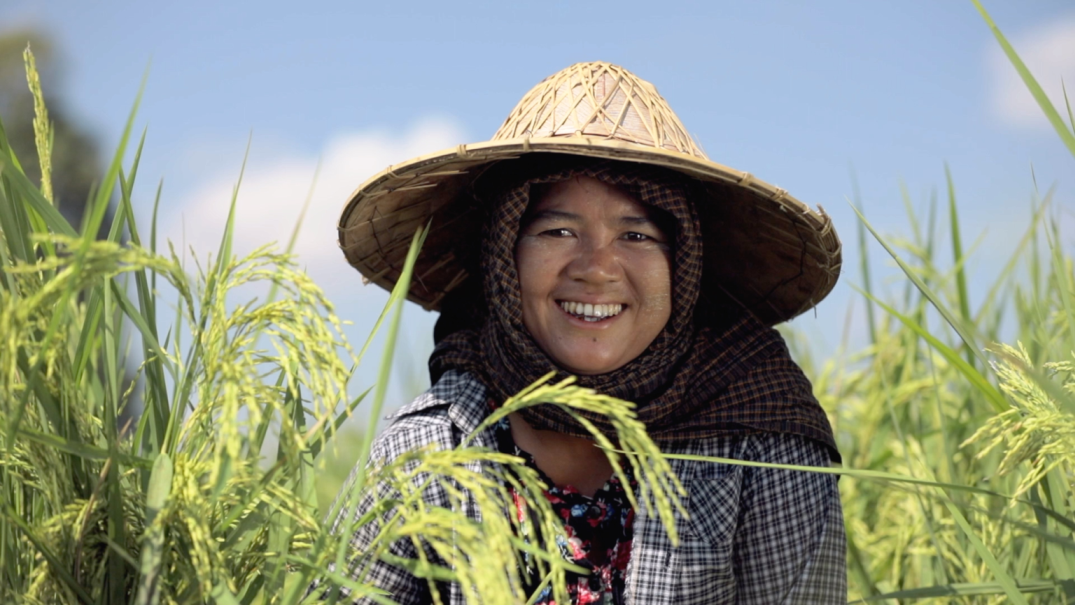Empathy ends inequality
For all the negative implications the pandemic has brought along, one thing we can all agree on is the effect of the pandemic on reshaping how businesses behave. The economic downturn has led to positive impacts such as rapid digitalization and technology adaptation, and it has also provided time and space for us to rethink the supply chain as a whole. For a young brand, Golden Sunland thrived during the first wave of the pandemic as consumers mindlessly hoarded daily staples such as rice. However, such a surge in sales does not last and it led to the question of who to include in an inclusive business model.
From the very beginning, we have focused largely on the base of the pyramid because the concept is easier to grasp and success is more visible. Through our guaranteed paddy buyback schemes and extensive farm advisory, empowering our smallholder farmer partners with relevant knowledge and fair, stable profits is foundational to our business model. Livelihood improvements are quantifiable, especially when the baseline is low for these smallholder farmers. However, we sense limitations in the impact we can create and commercial sustainability we can ensure if we solely focus on one end of the supply chain. In this article, we would like to explore a novel concept. Have we excluded the end consumers in our inclusive businesses?
Consumers drive demand, thus enriching the supply chain. Plainly, if consumers do not purchase goods, we are unlikely to drive any positive impact at the producers' level (which in our case are those at the bottom of the pyramid). Inclusive businesses have roles and we would even venture to say responsibilities to tell stories in a manner that cultivates long-term empathy instead of short-term sympathy. The old narrative communicates the plight of the farmers to the consumers, thus triggering charitable impulses in some with the intention of eventually leading to sales. But we need to move towards a newer narrative where we help consumers understand they are part of the problem, and thus are integral within the decision making processes. Inclusive businesses like Golden Sunland have a role to play in creating a platform to bridge producers and consumers, to facilitate better decision making within their respective sphere of action, and also to provide an avenue for a positive feedback loop.
We need to include the consumers in the conversation because that is where the purchasing power lies, and consumer inclination is a force that could transform industries. Evidently, we are already seeing consumer led transformation in the fashion industry, where consumers are more aware of the negative repercussions of fast fashion. When consumers make a decision to support a better product out of deeper understanding and appreciation of the value chain, this commitment is more likely to last as compared to spur of moment purchases out of kindness or even guilt.

While we work on being more equitable financially and environmentally upstream, we also need to ensure consumers are properly equipped with the right knowledge. For us, contributing to financial empowerment for those at the bottom of the pyramid includes: i) guaranteeing decent profits and protection from price fluctuations through contract farming and ii) provision of quality inputs such as seed and fertilizer on credit (paid back through the contract farming agreement). These practices have led to a threefold increase in income for our best-performing farmer partners, and it is by unlocking such financial security that they can escape vicious debt cycles and actually accumulate savings to invest in their future and that of their children. We are now looking at impact that when replicated at scale, can uplift entire communities for generations to come.
Smallholder farmers have rights to better livelihoods because they are essentially the food system. It is simply common sense to not bite the hand that feeds us and Golden Sunland recognizes the relationship between us and the smallholder farmers is largely symbiotic. To promote “knowledge equity,” consumer education and advocacy plays an important part of any inclusive business. Commercially, it is a way to cultivate a customer base, but the impact will extend beyond just profitability. Increased consumer awareness and support accelerates positive impact on the ground and such acceleration is only possible when a company has gained enough commercial traction to support inclusive initiatives. Golden Sunland can always be doing more to directly uplift the livelihoods of our farmer partners – but much of this is contingent upon the ability to scale our outreach and operations. And this is arguably largely driven by the demand for and belief in our products and the sustainable processes to which we are committed.
These are mandates that conventional businesses can learn much from – committing to ethical and transparent supply chains, stimulating and preserving demand for sustainably produced products and making accessible traceable connections between producers and consumers. Businesses deliver what consumers want, but companies should steward resources to influence responsible demand and consumption, and this can only happen with transparency and accountability.
Inequality exists in many forms and the knowledge gap does not only apply to those at the base of the pyramid, but also applies to the rest of the supply chain. For inclusive businesses to truly fulfill their key objectives, a proper consumer engagement strategy is as important as inclusion of underrepresented groups. By learning how to communicate and resonate effectively at the consumer level, an inclusive business has a better chance of achieving financial success and sustaining its positive impact upstream, thereby solving economic inequality.
